Virtus et Fraternitas Medal - Instytut Pileckiego
Virtus et Fraternitas Medal
The Virtus et Fraternitas Medal is a token of gratitude of the Republic of Poland for rescuing its citizens in times of the country’s greatest distress.
Helping others in times of extreme distress is an act of both courage and solidarity with the persecuted. It is only when leafing through books about the 20th century that we realize the true sense of this seemingly trivial observation. Two world wars, bloody revolutions, ethnic cleansings, political repression – all brought suffering and death to millions of Polish citizens. But when we ask questions as to the nature of evil, we should in equal measure reflect on the source of good. For it was during the very same period of history that Polish citizens themselves were the recipients of aid and succor readily provided by others; the fact is corroborated by thousands of pages of memoirs, testimonies, and other documents. This help took various forms and was either long-term or temporary, but what is crucial is that it saved lives or significantly increased chances of survival. Clearly, therefore, it should be our duty to save these stories from oblivion.
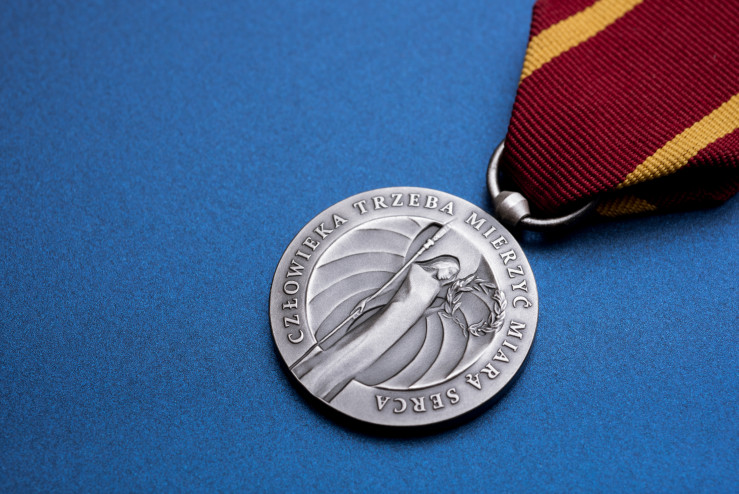
The Virtus et Fraternitas Medal is awarded by the President of the Republic of Poland as a token of commemoration and gratitude to persons who provided aid and assistance to Polish citizens. It is also bestowed to honor individuals who, by acting spontaneously and voluntarily, keep alive the memory of those of our compatriots who did not survive the war or the forced deportations, and found their graves in foreign soil.
NOMINATED FOR THE VIRTUS ET FRATERNITAS MEDAL
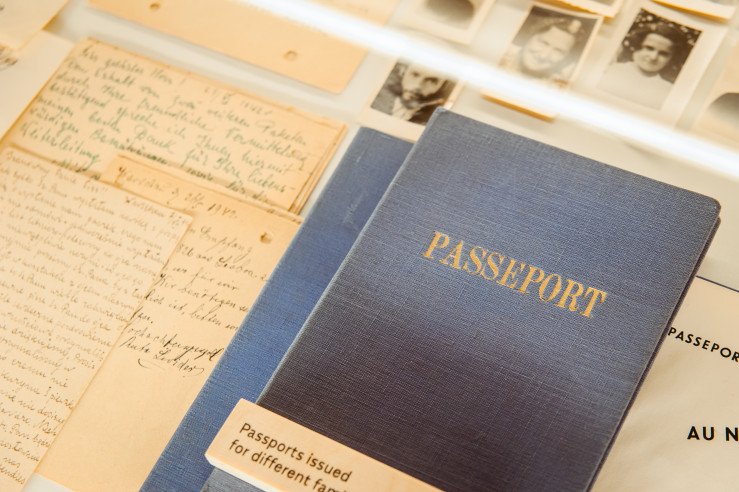
The Ładoś Group
The Ładoś Group, also called the Bernese Group, comprised Polish diplomats, employees of the Polish embassy in Bern, and representatives of Jewish organizations cooperating with them. The group was led by the Polish embassy’s chargé d’affaires Aleksander Ładoś. In addition to him, three other Polish diplomats at the embassy were also members of the group: Stefan Ryniewicz, Konstanty Rokicki and Juliusz Kühl, as well as two activists from Jewish organizations in Switzerland: Abraham Silberschein and Chaim Eiss.
During the Second World War, the group illegally issued Latin American (mainly Paraguayan) passports. The operation was initially intended for Jews in the ghettos of occupied Poland, but over time the passports were sent to other countries such as the Netherlands. Issuing these passports to Jews greatly increased their chances of survival — the documents meant their bearers might be sent for internment instead of extermination. It is estimated that the group issued passports for up to 10,000 people.
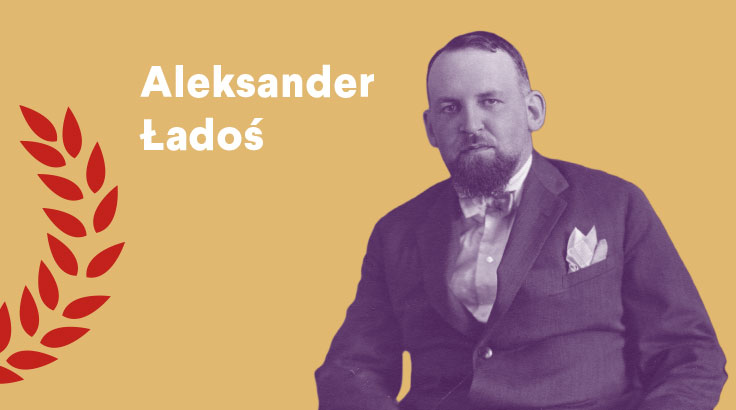
► Aleksander Ładoś (1891–1963)
Polish diplomat, journalist, and politician. His diplomatic career began in 1919. In 1920—1921 he was a secretary in the Polish delegation during peace talks with the Soviet Union, then he was the Polish representative in Latvia (1923—1926), and later the Polish Consul General in Munich (1927—1931). In the 1930s he took mainly to political journalism. Following the start of the war, he was a minister without portfolio in Władysław Sikorski’s government-in-exile from 3 October to 7 December 1939.
In 1940—1945 he was the Polish representative in Switzerland as the chargé d’affaires ad interim. He looked after Polish refugees as well as the interned soldiers of the 2nd Rifle Division. He was the leader of the group which issued illegal Latin American passports to persecuted Jews. Ładoś gave the group diplomatic protection. After the Swiss authorities discovered the passport campaign in 1943, he intervened with the Swiss Foreign Minister and helped to keep the operation quiet.
He stayed in Switzerland after the war and moved to France in 1946. He returned to Poland in 1960 and died in Warsaw three years later.
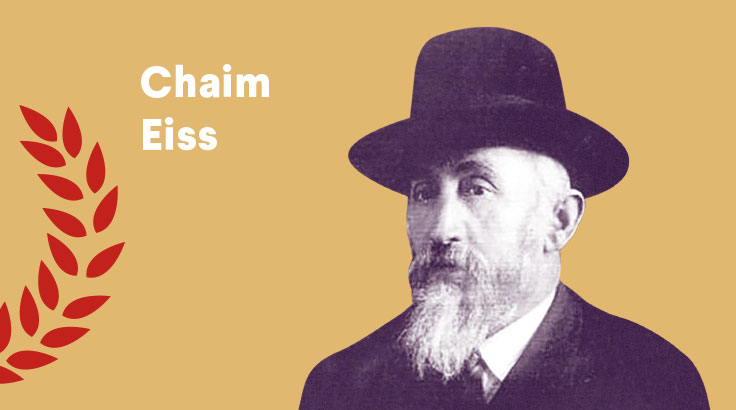
► Chaim Yisroel Eiss (1876–1943)
Born in Ustrzyki into an Orthodox Jewish family, Eiss went to study in Switzerland in 1900, but a lack of funds meant that he opened a shop and started trade one year later. He helped refugees during the First World War. He was an active element in the Jewish community and was one of the founders and leaders of the international political group Agudat Israel. He used the contacts he had gained in Europe over the years to rescue Jews from nations under German occupation.
Cooperating with the Polish diplomats in Bern, he created a network to smuggle passports into the ghettos of occupied Poland. He co-financed the Ładoś Group’s operations, acquired lists of the names of Jews for whom the documents were intended and obtained the photographs necessary for the passports to be issued.
He died of a heart attack in Zurich in October 1943, leaving behind a priceless archive documenting the group’s work, including filled-out documents and correspondence between the Polish diplomats and Jewish organizations. The so-called “Eiss Archive” was procured by the Polish government in 2018 and has enriched the collections of the Auschwitz-Birkenau Museum.
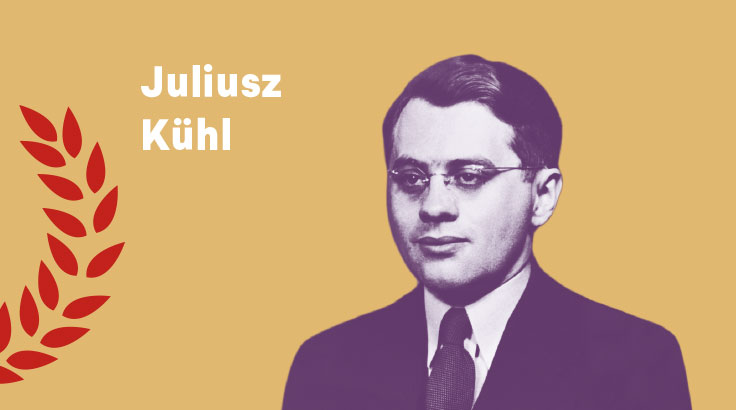
► dr Juliusz Kühl (1913–1985)
Juliusz Kühl was from a family of Orthodox Jews. Born in Sanok, he went to Switzerland in 1929 in order to study at the University of Bern. He began cooperating with the Polish embassy in Bern while working on his doctorate on Polish-Swiss trade relations, thanks to which he became employed there as a consular official after the outbreak of the Second World War.
As a member of the Ładoś Group, he was responsible for acquiring Latin American passports in blanco and for contacting Jewish organizations. Switzerland did not recognize his diplomatic status until the end of the war and he was twice interrogated by the Swiss police in charge of the investigation into the illegal passports. He remained in Switzerland after the war. He left for Canada in 1949 and moved to the USA in 1980, where he died in 1985.
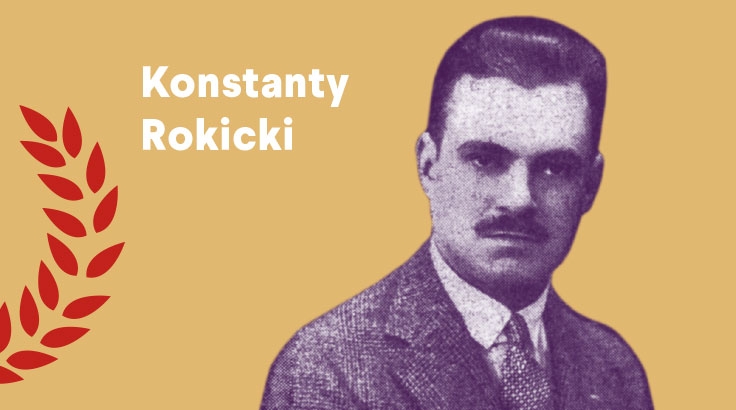
► Konstanty Rokicki (1899–1958)
Konstanty Rokicki played an active role in the fight for independence as a participant in the Polish-Soviet war. His diplomatic career started at the beginning of the 1930s in the consulates in Minsk, Riga and Cairo, which led to him becoming vice-consul in Bern, a position he held from 1939 until the end of the Second World War.
During this time, Rokicki was responsible for one of the Ładoś Group’s most important tasks. In the years 1941—1944 he alone hand-wrote several thousand Paraguayan passports which were then smuggled into occupied Poland, giving Jews a chance to avoid the Holocaust. Following the war, he refused to continue serving in an embassy subject to communist authority. He remained in Switzerland for the rest of his life and died, forgotten, in 1958.
It was only several years ago that Rokicki’s efforts were noticed and recognized. His burial place was found in 2018 and a second, official funeral was held in Lucerne in the presence of Polish president Andrzej Duda. In April 2019, the Israeli institute Yad Vashem named him Righteous Among the Nations as the only member of the Ładoś Group.
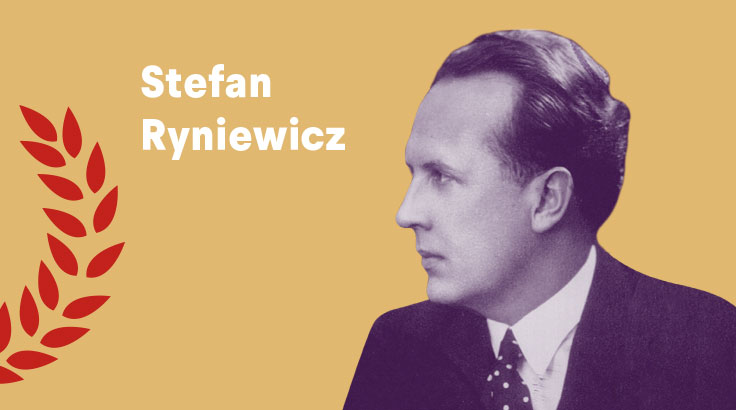
► Stefan Jan Ryniewicz (1903–1988)
His diplomatic career began in 1928 at the Polish embassy in Bern (1928 —1933). Next, he was employed in the cabinet of Józef Beck, the minister of foreign affairs. He was the Polish consul in Riga in the years 1935—1938 before he returned to the embassy in Bern as the First Secretary and from 1943 as an advisor. He was the deputy to Aleksander Ładoś and a member of the group which issued illegal Latin American passports to persecuted Jews.
Ryniewicz’s role was to provide diplomatic security to the whole operation. He convinced Latin American diplomats to acknowledge the passports and maintained contact with Jewish organizations. When the Swiss authorities discovered the passport campaign in 1943, he intervened with the head of the Swiss police, helping to keep the operation quiet.
He remained in Switzerland after the war and then went to France. From there, he emigrated to Argentina where he ran his own business. He was an active member of the Polish diaspora and was the chairman of the Polish Club. He died in Buenos Aires in 1988.
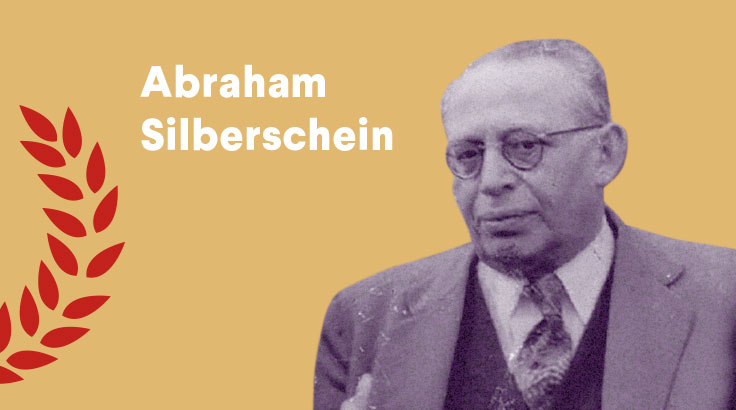
► Abraham Silberschein (1881–1951)
Polish Zionist activist, lawyer, and politician. After Poland regained independence, he was the chairman of the Zionist Organization in Eastern Małopolska and a leading member of the Hitahdut party. Between 1922—1927 he was a member of the Polish parliament as part of the Bloc of National Minorities. He belonged to the Jewish Circle in parliament and was a member of its presidium until 1925. He started work in the top cadre of the World Jewish Congress in 1936 and went to Switzerland in August 1939. In September 1939 he founded the Relief Committee for the Warstricken Jewish Population (RELICO) in Geneva.
He was a member of the Ładoś Group, which issued illegal Latin American passports to European Jews. His role in the group was to provide lists and photographs of people who were to receive the passports, to acquire funds to finance the operation and to cooperate with the Latin American diplomats. The Swiss police arrested him for a short time in 1943 as a result. He remained in Switzerland after the war and engaged in helping Holocaust survivors. He died in Geneva in 1951.
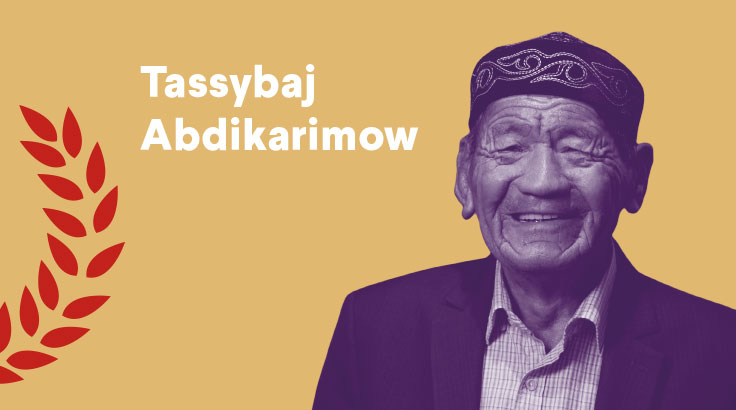
Tassybaj Abdikarimow (ur. 1938)
Following the territorial changes introduced after the Second World War, about 35,000 Poles who stayed in their homes beyond the Eastern border of Poland were deported by the Soviet authorities to the East. The last large deportation of this kind occurred in April 1952, when the deportees from the Byelorussian Soviet Socialist Republic were transported to southern Kazakhstan and placed in kolkhozes and sovkhozes where they lived with the locals.
Among the deportees was the Jabłoński family, who eventually settled in the Pakhta-Aral sovkhoz in the village of Ilich. The Jabłoński family were in an extremely difficult situation — terrible sanitary conditions, shortage of food, and hard labor in the sun caused a very high mortality rate among the inhabitants. Amelia Jabłońska had to provide for her three children and herself alone when her son Walenty fell ill.
During this difficult time, help came from a 16-year-old Kazakh, Tassybay Abdikarimov, who shared food with his neighbors and looked after the ailing Walenty. Through these modest means of support, he helped the Jabłońskis adapt in Kazakhstan. Following the amnesty, some family members returned to Poland in 1956. The extraordinary friendship between the young Polish and Kazakh men has endured — Tassybay Abdikarimov continues to look after the graves of Walenty’s father and siblings, as well as of other Poles who never returned to their homeland.
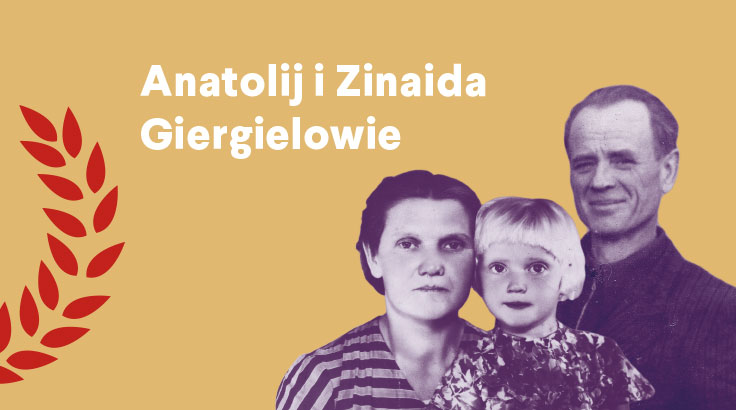
Anatolyi Giergiel (1904–1981)
Zinaida Giergiel née Radczuk (1912–1989)
From the beginning of the Second World War, after the USSR and Nazi Germany entered the Polish territories, occupation policies of both invaders were aimed at dividing and antagonizing the citizens of the Second Polish Republic, especially in the Eastern Borderlands, where Poles, Ukrainians, Belarussians and Jews lived side by side. In the summer of 1943 in Volhynia, a systematic ethnic cleansing operation involving mass murder of Poles was carried out by the units of the OUN/UPA with the help of the local Ukrainian population.
In the village of Marcelówka near Volodymyr-Volynskyi, a longstanding neighborly bond between the Polish Zaremba family and the Ukrainian Giergiel family prevailed over the deliberately fostered antagonisms dividing the nations. Having learned about a planned attack by Ukrainian nationalists on Poles, Anatolyi Giergiel warned his friend, Władysław Zaremba, who then managed to alert the rest of the village. As a result, the Zaremba family and other Polish inhabitants of Marcelówka escaped violent death.
Zinaida Giergiel suspected that after being chased out of their homes and suffering from hunger, the Poles would attempt to return to their farms. For several days she kept watch in case their neighbors appeared. She was able to warn Rozalia Zaremba that a unit of the OUN/UPA was waiting for them in the house, and consequently saved the Zaremba family from death for the second time.
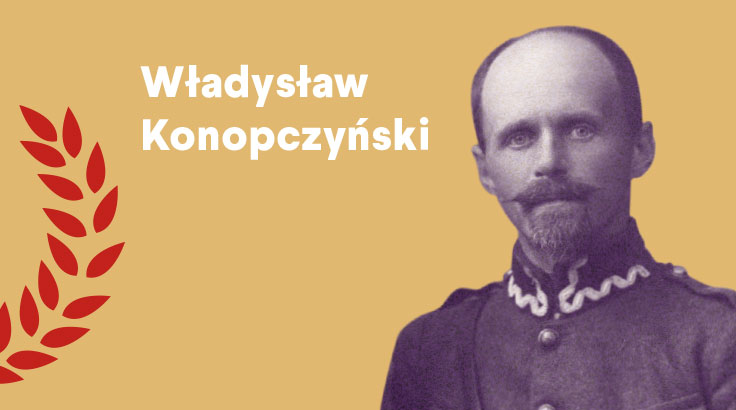
prof. Władysław Konopczyński (1880–1952)
Before the Second World War, Władysław Konopczyński lectured at the Jagiellonian University. A prominent historian specializing in the modern period, author of Polski Słownik Biograficzny [Polish Biographical Dictionary], and MP of the Polish Parliament (I term), he was arrested on 6 November 1939 during the Intelligenzaktion — a German operation aimed at killing the Polish intelligentsia. He was imprisoned in Kraków, then Wrocław, and finally KL Sachsenhausen until February 1940. Released from the camp, he engaged in clandestine teaching. His family’s difficult financial situation in occupied Kraków caused him to spend much of his time on the estate in Młynik near Ojców.
Following the defeat of the Warsaw Uprising on 2 October 1944, the civilians were driven out to the transit camp in Pruszków. Among the crowds expelled from the burning city were Konopczyński’s relatives — the family of a Polish-Jewish historian, Ludwik Widerszal, who was murdered in June 1944. Konopczyński offered shelter to Widerszal’s mother Eugenia, wife Elżbieta, daughters — Agnieszka (6 years old) and Maria (several months old), and Elżbieta’s mother, Kalina Lutostańska — sister-in-law of Konopczyński’s wife. They remained in Młynik until the end of the war.
In 1948, the communist authorities removed Konopczyński from the Jagiellonian University and a year later forced him to resign as the chief editor of Polski Słownik Biograficzny.
Antoni Nagórka (1901—1977)
Władysława Nagórka z d. / née Lech (1895—1981)
Before the war, the population of Otwock near Warsaw — a town famous for its health resorts – numbered over 10,000 Jews. September 1939 brought an end to their community, which had been developing since the 19th century. During the German occupation, they were in danger of persecution and deportation. In 1940 the Germans separated Jews and Poles, who used to live side by side. The Jews from Otwock and its environs were resettled in a newly-established ghetto. During the liquidation operation of 1942, thousands of them were murdered or sent to the extermination camp in Treblinka.
Antoni and Władysława Nagórka lived at the edge of the town. Before the war, Antoni worked for the railways, and Władysława was a housewife. During the war they saved five Jews from the Holocaust. One of them was Benjamin Krochmalik. It is likely that they had known each other before the war — Krochmalik used to be a barber in nearby Kołbiela. In August 1942, while he was returning from work outside the ghetto, Władysława warned him that he might be arrested and deported. She offered him shelter. Hidden in Antoni and Władysława’s house, Benjamin survived the occupation. After the war he settled with his family in Australia, but in 1973 he started visiting the Nagórkas every year.
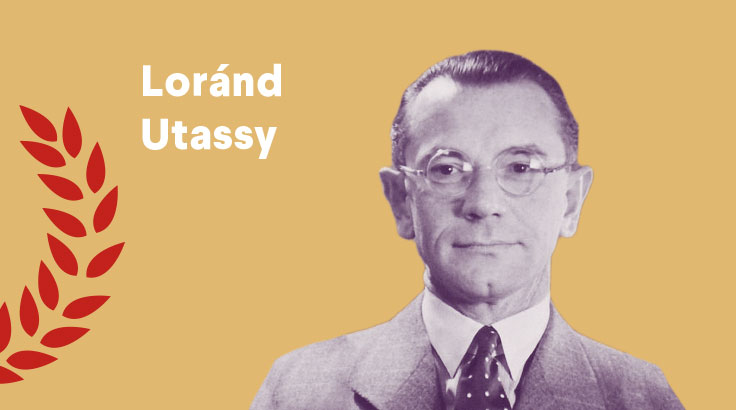
gen. Lóránd Utassy de Újlak (1897— 1974)
On 17 September 1939, the Commander-in-Chief of the Armed Forces ordered Polish troops to withdraw from the territory of Poland, by then occupied by both the Third Reich and the Soviet Union. Those soldiers who crossed the border to the Kingdom of Hungary were interned in POW camps — in spite of Hungary’s alliance with Hitler, the government of Miklós Horthy steadfastly refused to surrender the Polish internees to the Germans. When in October 1943 Lóránd Utassy was appointed head of the 21st Department for Prisoners of War and Internees in the Honvéd Ministry, thousands of Polish soldiers were entrusted to his care.
Utassy — a solider and an experienced diplomat who had previously served as his country’s military attaché to London — succeeded Zoltán Baló, who was dismissed after accusations were made by the German embassy that he took part in organizing transfers of Polish soldiers to Western Europe. Despite growing pressure from the Germans, Utassy continued the policy of his predecessor.
In March 1944, Germany occupied Hungary. All Polish civilian organizations were abolished, and both their activists and the Hungarian officials involved in providing help to Poles were arrested. Utassy categorically denied the Gestapo access to the internment camps and refused to surrender Polish soldiers. He also participated in talks with the Red Cross, aiming to establish it as the representation of Poles who had found themselves on Hungarian soil.
When half a year later the Hungarian fascists assumed power, Utassy was arrested and deported to several German concentration camps in succession. In 1951, the Communist authorities branded him an “enemy of the people” — he was demoted and had part of his property confiscated. He was rehabilitated in 1990 and promoted to the rank of general.
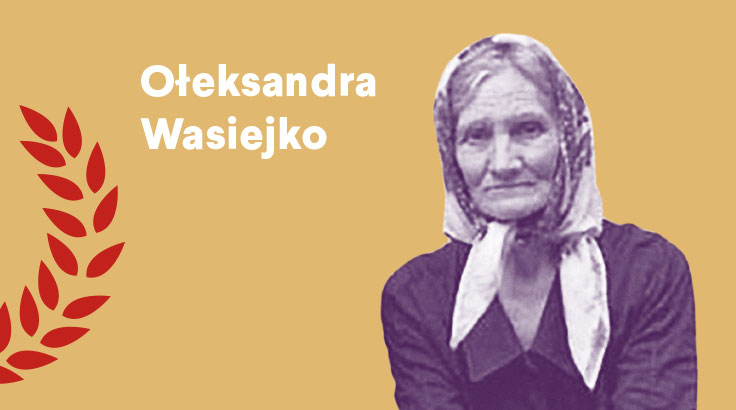
Oleksandra Vaseyko née Lukashko (born 1946)
During the Volhynia Massacre in the summer of 1943, Ukrainian nationalists systematically attacked and murdered Poles living in the eastern provinces of the country. The majority of those killed were buried in mass graves, the locations of which remain unknown to date.
Before 1939, Kalennyk Lukashko, Oleksandra’s father, was on very good terms with the Polish residents of neighboring villages. When during the War the Ukrainian Insurgent Army commenced its campaign of anti-Polish violence, he shunned from his fellow Ukrainians and provided aid to three Poles who had survived the massacre and hidden in a forest close by. Learning a few days later that they had been murdered, he buried them and pointed out their last resting place to Oleksandra, 6 years old at the time, marking the spot with crosses cut out in the bark of some nearby trees.
Over the next seventy years Oleksandra Vaseyko kept alive the memory of the victims, bringing flowers to their graves and keeping them in her prayers. She also helped Polish archeologists uncover the mass burial sites of Poles murdered in Wola Ostrowiecka and Ostrówki.
See also
- We know the names of the Virtus et Fraternitas Medal recipients | 2024
We know the names of the Virtus et Fraternitas Medal recipients | 2024
On 17 December 2024, the Virtus et Fraternitas Medal ceremony was held for the sixth time at the Belweder Palace in Warsaw. The award was given to 10 people from the following countries: Austria, Norway, Slovakia and Hungary.
- Virtus et Fraternitas Medals awarded | Discover the stories of heroic Ukrainians who saved their Polish neighbors during the Volhynian Massacre
Virtus et Fraternitas Medals awarded | Discover the stories of heroic Ukrainians who saved their Polish neighbors during the Volhynian Massacre
On 6 July 2023, at the Belweder Palace in Warsaw, fifteen heroic Ukrainians were commemorated for saving their Polish neighbors from death at the hands of the Ukrainian Insurgent Army (faction of the Organization of Ukrainian Nationalists) during the Volhynia Massacre.
- We now know the names of the Virtus et Fraternitas Medal recipients
We now know the names of the Virtus et Fraternitas Medal recipients
On 20 December 2022, at the Belweder Palace in Warsaw, we honored Ilona Andrássy, Trofim Daneliuk and the Skakalski family, who demonstrated courage and solidarity with the persecuted when Poland was attacked by two murderous regimes, and the Polish citizens were in grave danger.
- Virtus et Franternitas Medals presented
Virtus et Franternitas Medals presented
The third edition of the Virtus et Fraternitas Medal Gala took place on 15 June 2022. This time, at the request of the Director of the Pilecki Institute, the President of the Republic of Poland bestowed medals on a total of 23 people.
- The Virtus et Fraternitas Gala 2021. Meet all the recipients!
The Virtus et Fraternitas Gala 2021. Meet all the recipients!
The President of Poland Andrzej Duda awarded the medals to foreigners who provided aid to Polish citizens during the 20th century, in times of both war and peace.
- Walenty Jabłoński, doctor and an exile in Siberia, is dead
Walenty Jabłoński, doctor and an exile in Siberia, is dead
We are sad to learn of the death of Walenty Jabłoński, an exile in Siberia, participant of the Union of Siberian Exiles in Białystok. He was deported to a kolkhoz in Kazakhstan in 1952, where he was saved from starvation and death by Tassybaj Abdikarimow.
- The President of the Republic of Poland decorates recipients with the Virtus et Fraternitas Medal
The President of the Republic of Poland decorates recipients with the Virtus et Fraternitas Medal
The Virtus et Fraternitas Medal has been bestowed for the first time in history in June 2019. The awards were given by the President of the Republic of Poland, Andrzej Duda, acting on a motion of the Pilecki Institute.